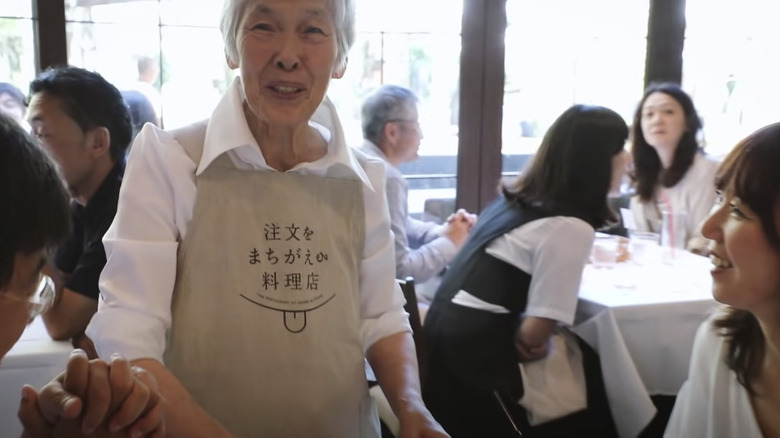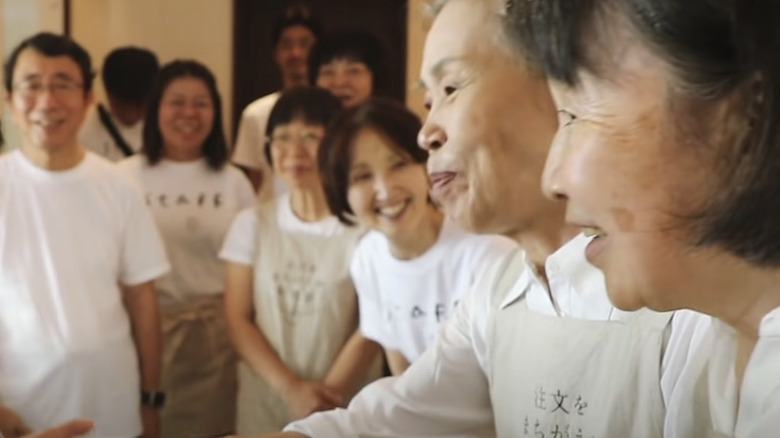Tokyo's Restaurant Of Mistaken Orders Has A Unique And Heartwarming Mission
The Restaurant of Mistaken Orders is exactly what it sounds like. If you're in Tokyo and decide to patronize the spot, you should know beforehand that you could order a sandwich and end up with a soup, but that it's all part of the experience and shared joy of the place. The reason that there is a distinct possibility of getting the wrong thing? The restaurant's founder Shiro Oguni exclusively employs people with dementia.
While Japan has one of the highest life expectancies, according to the OECD, the proportion of its population that suffers from diseases like Alzheimer's is among the highest in the world, at 2.3%, or around 4.6 million people. Two out of three Japanese people affected by dementia live at home and tend to isolate, which exacerbates the condition and worsens the effects of the cognitive disease. The Restaurant of Mistaken Orders not only helps this demographic by giving them the confidence and support to engage with customers, but it's also helping shift the public's mindset around dementia and those who live with it.
Cultivating Tolerance
Oguni says many are uninformed about the realities of life for those dealing with dementia and tend to underestimate how capable those living with the condition are. Naturally, he didn't want folks to get the wrong impression about what he was trying to achieve and worked to allay concerns some might've had about workers being exploited, but by all accounts, the vibe in the place is overwhelmingly positive. Since the restaurant's inception in 2017, the experience of working there has afforded its employees a sense of independence and fulfillment, while patrons are delighted and inspired (sometimes moved to tears) by their experience with the staff.
Only 37% of orders at The Restaurant of Mistaken Orders are actually incorrect, and when they are, it is treated as a cause for laughter and celebration. The spirit of The Restaurant of Mistaken Orders speaks to the Japanese concept of kintsugi, in which broken pottery is repaired with gold to not only define but beautify its fractures. Philosophically, kintsugi celebrates the history of an object by artfully emphasizing its imperfections rather than treating them as a reason for it to be discarded. "Dementia is not what a person is, but just part of who they are," Oguni writes on the restaurant's website. "The change will not come from them, it must come from society. By cultivating tolerance, almost anything can be solved."

